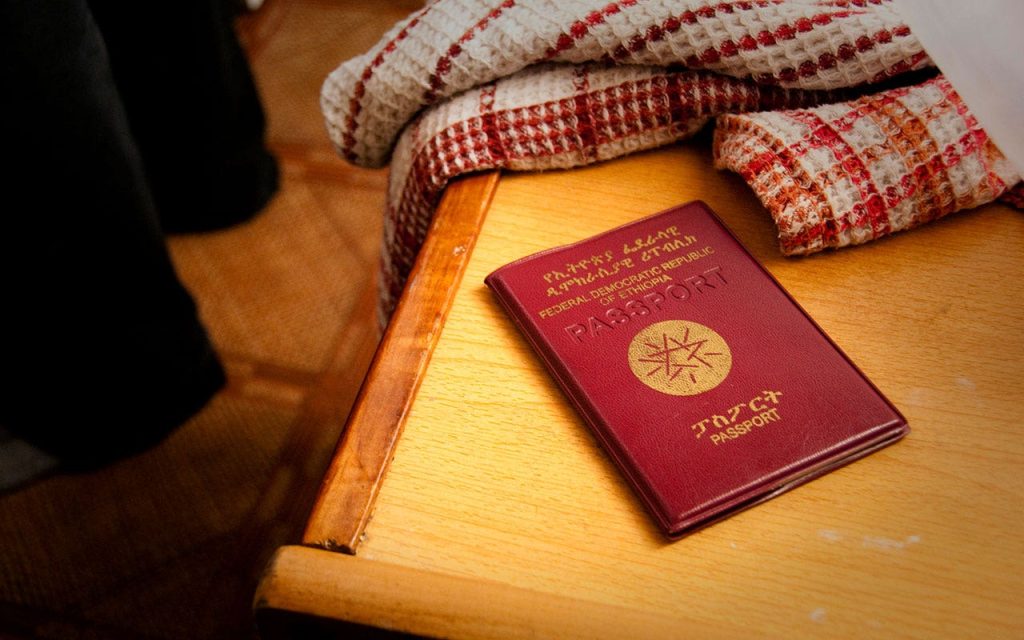The European Union has announced stricter visa requirements for people from Ethiopia, citing the government’s failure to cooperate in taking back citizens found to be living illegally in the 27-nation bloc. The time it takes to process visas for Ethiopian nationals will triple from 15 to 45 days, and EU countries will no longer be allowed to waive requirements or issue multiple-entry visas. Ethiopian diplomats and officials will now have to pay for travel visas as well. The European Commission has stated that visa rules will be used as a way to pressure countries to cooperate in deportation procedures, as only one in three people ordered to leave the EU actually do so.
In response to the conflict and humanitarian crisis in Ethiopia, a fundraising effort was launched to provide aid to the country. However, the initiative only garnered $630 million, just over half of the $1 billion goal. The Commission’s decision to tighten visa requirements is based on the lack of response from Ethiopian authorities regarding readmission requests, as well as deficiencies in the organization of return operations, both voluntary and non-voluntary. Many people who stay illegally in the EU do so by arriving legally via airports or ports and then overstaying their visas, outnumbering those who arrive by boat or overland in search of a better life in Europe.
Ethiopia is currently facing conflicts and humanitarian crises, with the two-year conflict in the northern Tigray region leaving a majority of the population reliant on international aid. The country serves as a major origin and transit point for migrants and refugees in the Horn of Africa region, often serving as a hub for individuals from Eritrea and Somalia seeking to reach Europe or other parts of Africa. The EU’s decision to tighten visa requirements for Ethiopian nationals is intended to put pressure on the government to cooperate in deportation procedures and address the issue of illegal immigration.
The European Union’s tightening of visa requirements for Ethiopian nationals reflects its efforts to address illegal immigration and the lack of cooperation from the Ethiopian government in taking back citizens living illegally in the EU. The decision to triple the processing time for visas, prohibit waiver of requirements, and make diplomats and officials pay for travel visas is part of a strategy to use visa rules as a means of applying pressure on countries to cooperate in deportation procedures. The EU aims to improve the organization of return operations, both voluntary and non-voluntary, and reduce the number of individuals who overstay their visas and remain in the EU.
The decision to impose stricter visa requirements comes amid ongoing conflicts and humanitarian crises in Ethiopia, particularly in the Tigray region, where millions of people are in need of international assistance. Ethiopia’s role as a major origin and transit point for migrants and refugees in the Horn of Africa region highlights the complexities of migration in the region. The EU’s actions are a response to the challenges posed by illegal immigration and the need to address the root causes of migration, including conflict, poverty, and instability in countries of origin. By tightening visa requirements, the EU is seeking to encourage cooperation from the Ethiopian government and other countries to address these issues and improve migration management.
In conclusion, the European Union’s decision to tighten visa requirements for Ethiopian nationals is part of a broader strategy to address illegal immigration and improve cooperation with countries of origin and transit. The EU’s efforts to use visa rules as a means of applying pressure on countries to cooperate in deportation procedures reflect its commitment to addressing the challenges posed by illegal migration. The ongoing conflicts and humanitarian crises in Ethiopia underscore the complexity of migration in the region and the need for coordinated action to address the root causes of migration. By taking steps to improve the organization of return operations and reduce the number of individuals living illegally in the EU, the EU is working to promote more effective migration management and cooperation with countries of origin.


